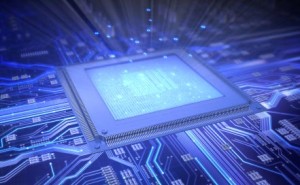 Memory management in computer science involves the control and coordination of computer memory systems and the optimization of overall system performance through efficient memory storage. Tactics involved with memory management have to do with not only a machine’s hardware, but also with the way its operating systems, applications, and programs function, according to Tech Target.
Memory management in computer science involves the control and coordination of computer memory systems and the optimization of overall system performance through efficient memory storage. Tactics involved with memory management have to do with not only a machine’s hardware, but also with the way its operating systems, applications, and programs function, according to Tech Target.
Memory Management in Various Contexts
Pieces of computer hardware that contribute to storage and memory management include RAM, memory caches, and flash-based drives such as SSDs. In terms of operating system functioning, memory management is implicated in the way the memory capacity of a machine is shared by the various programs in operation at a given moment on that machine, and also in the way this memory is reused later by additional programs.
A computer’s applications are influenced by memory management through the tasks of allocation and recycling. The memory manager of a machine must allocate memory towards an application in ways that are specified through various memory management allocation techniques. Furthermore, memory will no longer be needed by an application after memory has been allocated after a certain point when data stored using that memory is no longer required. This is when the recycling abilities of a machine’s memory management features come into play.
The Obstacles Confronted in Memory Management
Those who work with developing memory management capabilities and techniques must succeed in predicting when data contained in memory is needed and when it is no longer necessary. Memory is typically in short supply on a machine, and inefficient memory allocation will detract from a machine’s performance. The following are typical problems in memory management with which programmers and developers working in memory management must constantly struggle:
- Memory Leak- Certain programs can cause serious memory management problems by continuously taking in memory without later releasing it for recycling.
- External Fragmentation Issues– If free memory on a machine is divided into small blocks, applications on that machine might not be able to receive large enough blocks of memory.
- Locality of Reference Issues– An additional memory allocation issue that can come up in memory management is poor locality of reference. This happens when blocks of memory are located too far apart by the memory manager to efficiently allow for the memory accesses that follow.
- A Design That Lacks Flexibility– Memory manager design needs to be flexible, because the memory manager of a machine may need to be used in several different ways. If the memory management of a given machine is restricted to a particular scenario, such as one specific block size or reference pattern, machine performance and capabilities can be negatively impacted.
Related Resource: Computer Architecture
Memory management in computer science can be both manual and automatic, according to Memory Management. When memory management is manual, a programmer can directly control the release of previously used memory for recycling. In automatic memory management, memory recycling happens through memory managers that recycled memory blocks that cannot be reached by program variables. Memory management in computer science is continually being developed and advanced as machines and computer science techniques increase in complexity.